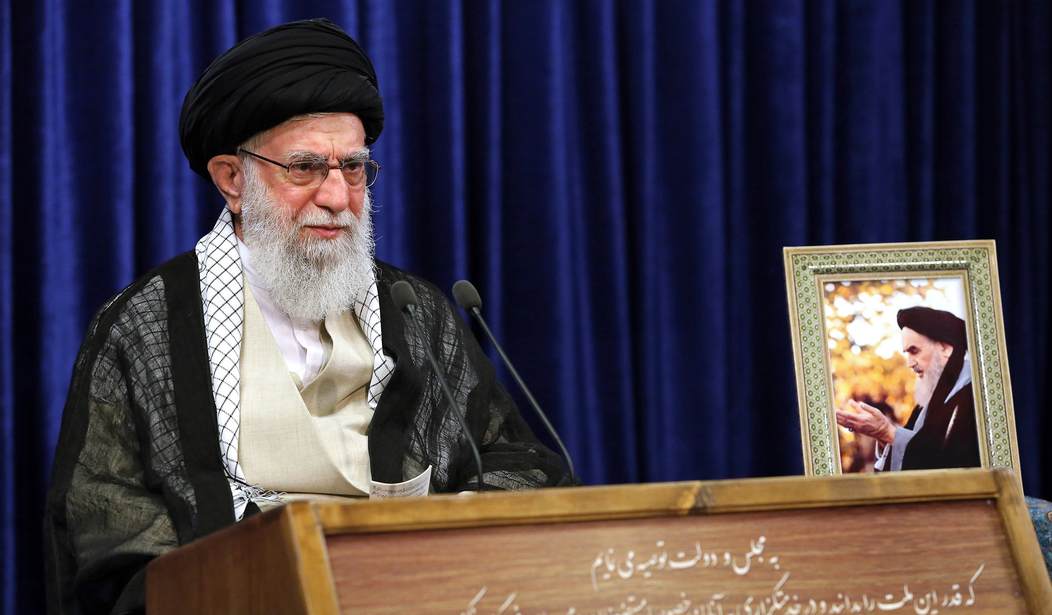The late Iraqi dictator Saddam Hussein was an evil man, who ran an evil regime that did evil things.
But in the years leading up to the second Iraq war, the U.S. government did not do a good job watching him.
In October 2002, Congress voted to authorize the president of the United States to use military force in Iraq. The main purpose of this authorization was to counter Saddam's perceived weapons of mass destruction program.
"Congress," the resolution said in part, "concluded that Iraq's continuing weapons of mass destruction programs threatened vital United States interests and international peace and security, declared Iraq to be in 'material and unacceptable breach of its international obligations' and urged the President 'to take appropriate action, in accordance with the Constitution and relevant laws of the United States, to bring Iraq into compliance with its international obligations.'"
Two years later -- after the United States had invaded Iraq and deposed Saddam -- the Senate Select Committee on Intelligence issued a "Report on the U.S. Intelligence Community's Prewar Intelligence Assessments on Iraq."
"Most of the major key judgments in the Intelligence Community's 2002 National Intelligence Estimate (NIE) 'Iraq's Continuing Programs for Weapons of Mass Destruction,' either overstated, or were not supported by the underlying intelligence reporting," this report concluded.
"The assessment that Iraq 'is reconstituting its nuclear program' was not supported by the intelligence provided to the Committee," it said.
How did the Intelligence Community get it so wrong on an issue that involved the United States in a war? One basic problem was the inability of the United States to put people on the ground in Iraq to find out what was going on there.
Recommended
"IC analysts told Committee staff that there was no robust HUMINT collection capability targeting Iraq's links to terrorism until the Fall of 2002," said the intelligence committee report. "Officers from the office of ADCI/C (Assistant Director of Central Intelligence for Collection) told Committee staff during interviews that HUMINT capabilities against (Iraq) were limited because there was no official U.S. presence in Iraq."
The intelligence committee's report then quoted a report by the Intelligence Community's Collection Concepts Development Center. "The current clandestine HUMINT capability against the Iraqi weapons of mass destruction (WMD) target is marginal, for a number of reasons," said this report. "First, the U.S. has no official (redacted) presence in Iraq, (redacted) This (redacted) makes recruitment of Iraqis exceptionally difficult. Second, the brutal and pervasively repressive nature of the Iraqi regime makes any contact (redacted) extremely risky. These conditions also make operations in Iraq (redacted) extremely dangerous."
Last Saturday, Hamas terrorists from Gaza launched a surprise attack on Israel. These terrorists, as reported by CBS News, killed at least 900 Israelis and 11 Americans.
"Hamas," the Congressional Research Service said in a report published this week, "reportedly receives much of its funding, weapons, and training from Iran."
As reported by the Daily Caller News Foundation, Ayatollah Ali Khamenei, Iran's Supreme Leader, posted on his English-language website -- on the same day Hamas launched this evil, murderous attack -- a speech he had delivered the previous Tuesday. He gave it this outrageous headline: "The usurper Zionist regime is coming to an end."
"The firm view of the Islamic Republic is that the governments that are gambling on normalizing relations with the Zionist regime will suffer losses. Defeat awaits them," the ayatollah said.
"Today, the Palestinian movement is more alive than it has ever been during these 70 or 80 years," he said. "Today, the Palestinian youth and the Palestinian movement, the anti-occupation, anti-oppression, anti-Zionism movement, is more energetic, more alive, and more prepared than ever, and you can see this. And God willing, this movement will achieve its goals. The honorable Imam (Khomeini), may God be pleased with him, described the usurper (Zionist) regime as a cancer. This cancer will definitely be eradicated, God willing, at the hands of the Palestinian people and the resistance forces throughout the region."
In this same speech, Iran's ayatollah called for an alliance against the United States.
"Today, the U.S. is harming the countries in the region both politically and economically," he said. "They interfere in the foreign policies of governments in the region, saying you should do this, you shouldn't do that. They even interfere in the internal policies of some countries.
"If we all become united and adopt a united policy, the U.S. cannot do these things," he said. "It will not dare to get involved in these matters."
The Annual Threat Assessment that the Office of the Director of National Intelligence presented to Congress in February described the threat that this ayatollah's Iran presents to America.
"Iran will continue to threaten U.S. persons directly and via proxy attacks, particularly in the Middle East," said the assessment. "Iran also remains committed to developing surrogate networks inside the United States, an objective it has pursued for more than a decade. Iranian-supported proxies will seek to launch attacks against U.S. forces and persons in Iraq and Syria, and perhaps in other countries and regions. Iran has threatened to target former and current U.S. officials as retaliation for killing the Islamic Revolutionary Guard Corps-Qods Force (IRGC-QF) Commander Qasem Soleimani in January 2020, and has previously attempted to conduct lethal operations in the United States."
This terrorist-backing regime needs to be constantly watched and completely stopped.
























Join the conversation as a VIP Member